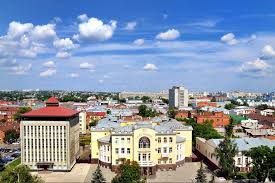×
- Home
- About
- Popular Medical College Hospital (PMCH)
- Diabetic Association Medical College Hospital (DAMC)
- Dhaka Central International Medical College & Hospital (DCIMCH)
- BGC Medical College
- Dhaka Community Medical College (DCMC)
- Eman Medical College
- Delta Medical College
- Tairunnessa Memorial Medical College
- Sylhet Women's Medical College (SWMC)
- East West Medical College
- Army Medical College
- Ibn Sina Medical College Hospital
- Jahurul Islam Medical College
- MH Samorita Medical College
- North East Medical College College
- President Abdul Hamid Medical College
- Shahabuddin Medical College
- Universal Medical College
- Ad-Din Foundation
- Anwer Khan modern Medical College
- Ajay Sangaal Institute of Medical Sciences and Ayushman Hospital, SHAMLI
- Career Institute of Medical Sciences & Hospital, Lucknow (Muslim Minority)
- Dr. B.S. Kushwah Institute of Medical Sciences, Kanpur
- Era Lucknow Medical College, Lucknow (Muslim Minority)
- F.H. Medical College & Hospital, Etamdapur, Agra (Muslim Minority)
- G.S. Medical College & Hospital, Hapur
- Heritage Institute of Medical Sciences (HIMS), Varanasi
- Hind Institute of Medical Sciences, Barabanki
- Hind Institute of Medical Sciences, Sitapur
- Integral Institute of Medical Sciences & Research, Lucknow (Muslim Minority)
- Naraina Medical College & Research Centre- Panki- Kanpur
- Noida International Institute Of Medical Sciences- Noida
- K.D. Medical College Hospital & Research Centre, Mathura
- KMC Medical College & Hospital, Maharajganj
- Krishna Mohan Medical College and Hospital, Mathura
- Mayo Institute of Medical Sciences, Barabanki
- National Capital Region Institute of Medical Sciences, Meerut
- Muzaffarnagar Medical College, Muzaffarnagar
- Prasad Institute of Medical Sciences, Lucknow
- Rajshree Medical Research Institute ,Bareilly
- Rama Medical College Hospital & Research, Hapur
- Rohilkhand Medical College & Hospital, Bareilly
- Saraswati Institute of Medical Sciences, Hapur
- Saraswati Medical College, Unnao
- School of Medical Sciences & Research ( Sharda University) Greater Noida
- Shri Gorakshnath Medical College Hospital & Research Centre, Sonbarsa (Gorakhpur)
- Shri Ram Murti Smarak Institute of Medical Sciences, Bareilly
- Shri Siddhi Vinayak Medical College & Hospital, Sambhal
- SKS Hospital Medical College & Research Centre, Mathura
- Subharti Medical College, Meerut (Baudh Minority)
- Teerthankar Mahaveer Medical College, Moradabad (Jain Minority)
- T S Misra Medical College & Hospital, Lucknow
- Varun Arjun Medical College, Shahjahanpur
- Bharatratna Atal Bihari Vajpayee Medical College, Pune
- SMBT Institute of Medical Sciences & Research Centre, Nandihills, Nashik
- Santhiram Medical College, Nandyal, Kurnool
- Shantabaa Medical College, Amreli
- Dr Moopen's Medical College , Wayanad
- Believers Church Medical College Hospital, Thiruvalla, Kerala (Christian Minority)
- Jubilee Mission Medical College & Research Institute, Thrissur(Christian Minority)
- Pushpagiri Institute Of Medical Sciences and Research Centre, Thiruvalla (Christian Minority)
- Sri Guru Ram Das Institute of Medical Sciences and Research (Sikh Minority) Amritsar
- Amaltas Institute of Medical Sciences, Dewas
- Chirayu Medical College and Hospital, Bairagarh ,Bhopal
- Index Medical College Hospital & Research Centre, Indore
- LNCT Medical College & Sewakunj Hospital, Indore
- L.N. Medical College and Research Centre, Bhopal
- Mahaveer Institute of Medical Sciences & Research, Bhopal
- Peoples College of Medical Sciences & Research Centre, Bhanpur, Bhopal
- Ram Krishna College Hospital & Research Centre, Bhopal
- Ruxmaniben Deepchand Gardi Medical College, Ujjain
- Sri Aurobindo Medical College and Post Graduate Institute , Indore
- Sukh Sagar Medical College and Hospital, Jabalpur
- Sri Satya Sai University of Technology and Medical Sciences, BHOPAL
- Alluri Sitaram Raju Academy of Medical Sciences, Eluru
- Apollo Institute of Medical Sciences & Research, Chittoor
- Dr. P.S.I. Medical College, Chinna avutapalli, Vijayawada
- Gayatri Vidya Parishad Institute of Health Care & Medical Technology, Visakhapatnam
- Great Eastern Medical School and Hospital, Srikakulam
- GSL Medical College, Rajahmundry
- Katuri Medical College, Guntur
- Konaseema Institute of Medical Sciences and Research Foundation, Amalapuram
- Maharaja Institute of Medical Sciences, Vizianagaram
- NRI Institute of Medical Sciences, Vishakhapatnam
- NRI Medical College, Guntur
- Narayana Medical College, Nellore
- P E S Institute of Medical Sciences and Research, Kuppam, Chittoor
- Sri Balaji Medical College, Hospital & Research Inst., Chittoor
- Viswabharathi Medical College, Kurnool
- Fathima Institute of Medical Sciences, Kadapa(Muslim Minority)
- Nimra Institute of Medical Sciences, Vijayawada, Krishna(Muslim Minority)
- GITAM Institute of Medical Sciences and Research, Visakhapatnam
- Raipur Institute of Medical Sciences (RIMS), Raipur
- Shri Shankaracharya Institute of Medical Sciences, Bhilai
- Shri balaji hospital campus, Mawa, Raipur
- Abhishek I Mishra Memorial Medical College & Research, Bhilai
- Shri Rawatpura Sarkar Institute of Medical Sciences and Research, Nava Raipur, Atal Nagar, District - Raipur
- Ananya College of Medicine & Research
- Banas Medical College and Research Institute, Palanpur, Gujarat
- CU Shah Medical College, Surendra Nagar
- Dr. Kiran C. Patel Medical College and Research Institute
- Dr. M.K. Shah Medical College & Research Centre, Ahmedabad
- Dr. N.D. Desai Faculty of Medical Science and Research, Nadiad
- GCS Medical College, Ahmedabad
- Gujarat Adani Institute of Medical Sciences, Bhuj
- Kiran Medical College, Surat
- Nootan Medical College and Research Centre, Mehsana
- Parul Institute of Medical Sciences & Research, Vadodara
- Pramukhswami Medical College, Karamsad
- SAL Institute of Medical Sciences, Ahmedabad
- SBKS Medical Inst. & Research Centre, Vadodra
- Shree Swaminarayan Vishvamangal Gurukul, Ahmedabad
- Zydus Medical College & Hospital, Dahod
- Bhagyoday Medical College, Kadi, Mehsana
- Karuna Medical College, Palakkad
- Malabar Medical College, Kozhikode, Calicut
- Mount Zion Medical College, Adoor, Pathanamthitta
- P K Das Institute of Medical Sciences, Palakkad, Kerala
- Palakkad Institute of Medical Sciences, Palakkad
- Sree Gokulam Medical College Trust & Research Foundation, Trivandrum
- Sree Narayana Instt. of Medical Sciences, Chalakka, Ernakulam
- SUT Academy of Medical Sciences, Thiruvananthapuram
- Al-Azhar Medical College and Super Speciality Hospital, Thodupuzha(Muslim Minority)
- Amala Institute of Medical Sciences, Thrissur (Christian Minority)
- Azeezia Instt. of Medical Science, Meeyannoor, Kollam(Muslim Minority)
- Dr. Somervell Memorial CSI Hospital & Medical College, Thiruvananthapuram (Christian Minority)
- Kannur Medical College, Kannur (Muslim Minority)
- KMCT Medical College, Kozhikode, Calicut (Muslim Minority)
- Malankara Orthodox Syrian Church Medical College, Kolenchery (Christian Minority)
- Travancore Medical College, Mylapore, Kollam (Muslim Minority)
- M E S Medical College , Malappuram(Muslim Minority)
- Adesh Institute Of Medical Sciences & Research, Bhatinda
- Christian Medical College, Ludhiana (Christian Minority)
- Dayanand Medical College & Hospital, Ludhiana
- Gian Sagar Medical College & Hospital, Patiala
- Punjab Institute of Medical Sciences, Jalandhar
- RIMT Medical College and Hospital Fatehgarh, Sahib
- Adesh Medical College and Hospital, Kurukshetra
- N.C Medical College & Hospital, Panipat
- World College Of Medical Sciences & Research, Jhajjar
- Al Falah School Of Medical Sciences & Research Centre, Faridabad (Minority Private University)
- Faculty of Medicine and Health Sciences, Gurgaon (SGT University)
- Amrita School of Medicine, Faridabad
- Maharishi Markandeshwar Institute Of Medical Sciences & Research, Mullana, Ambala
- Maharishi Markandeshwar College of Medical Sciences & Research, Sadopur
- Maharaja Agrasen Medical College, Agroha
- ACPM Medical College, Dhule
- Ashwini Rural Medical College, Hospital & Research Centre, Solapur
- B.K.L. Walawalkar Rural Medical College, Ratnagiri
- Bharati Vidyapeeth Deemed University Medical College & Hospital, Sangli
- Bharati Vidyapeeth University Medical College, Pune
- Datta Meghe Medical College, Nagpur
- Dr. D Y Patil Medical College, Hospital and Research Centre, Pimpri, Pune
- Dr. D Y Patil Medical College, Kolhapur
- Dr. N Y Tasgaonkar Institute of Medical Science, Raigad
- Dr. Panjabrao Alias Bhausaheb Deshmukh Memorial Medical College, Amravati
- Dr. Rajendra Gode Medical College, Amravati
- Dr. Ulhas Patil Medical College & Hospital, Jalgaon
- Dr.Vasantrao Pawar Med. Col. Hosp. & Research Centre, Nasik
- Dr. Vithalrao Vikhe Patil Foundations Medical College & Hospital, Ahmednagar
- Jawaharlal Nehru Medical College, Sawangi (Meghe), Wardha
- KJ Somaiya Medical College & Research Centre, Mumbai
- Krishna Institute of Medical Sciences, Karad
- Maharashtra Institute of Medical Sciences & Research, Latur
- Maharashtra Institute of Medical Education & Research, Talegaon, Pune
- Mahatma Gandhi Institute of Medical Sciences, Sevagram, Wardha
- Mahatma Gandhi Missions Medical College, Aurangabad
- Mahatma Gandhi Missions Medical College, Navi Mumbai
- Mahatma Gandhi Mission Medical College, Vashi
- N. K. P. Salve Inst. of Medical Sciences and Research Centre and Lata Mangeshkar Hospital, Nagpur
- Padmashree Dr. D.Y.Patil Medical College, Navi Mumbai
- Parbhani Medical College, Parbhani
- Prakash Institute of Medical Sciences & Research, Sangli
- Rural Medical College, Loni
- Sindhudurg Shikshan Prasarak Mandal (SSPM) Medical College & Lifetime Hospital, Padave, Sindhudurg
- Smt. Kashibai Navale Medical College and General Hospital, Pune
- Symbiosis Medical College for Women, Pune
- Terna Medical College, Navi Mumbai
- Vedantaa Institute of Medical Sciences, Palghar, Maharashtra
- Shri Ramchandra Institute of Medical Sciences, Aurangabad
- Mahatma Gandhi Missions Medical College, Nerul, Navi Mumbai
- Indian Institute of Medical Science & Research, Badnapur, Jalna (Muslim Minority)
- Dr Chandramma Dayanand Sagar Institute of Medical Edu., Hubli
- GR Medical College Hospital and Research Centre, Mangalore
- Siddhaganga Medical College & Research Institute, Tumakuru
- Adichunchanagiri Medical College, Bellur
- Basaveshwara Medical College, Chitradurga
- BGS Global Institute of Medical Sciences, Bangalore
- Dr. B R Ambedkar Medical College, Bangalore
- East Point College of Medical Sciences & Research Centre, Banglore
- Sri Siddhartha Medical College, Tumkur
- JJM Medical College, Davangere (Bapuji Medical)
- K V G Medical CollegeS, Sullia
- Kempegowda Medical College, Bangalore
- MS Ramaiah Medical College, Bangalore
- Mahadevappa Rampure Medical College, (H K E Society’s) Gulbarga
- Sri BM Patil Medical College Hospital and Research Centre, Bijapur
- Shridevi Institute of Medical Sciences & Research Hospital, Tumkur
- SS Institute of Medical Sciences, Davangere
- S. Nijalingappa Medical College, Bagalkot
- Sri Madhusudan Sai Institute Of Medical Sciences and Research
- Sri Chamundeshwari Medical College Hospital & Research Institute
- St. John's Medical College, Bangalore, Minority Religious ( Christian)
- Father Muller Medical College, Mangalore, Minority Religious ( Christian)
- Al-Ameen Medical College Bijapur Minority Religious ( Muslim)
- Khaja Banda Nawaz Medical College, Gulbarga Minority Religious (Muslim)
- Kanachur Institute Of Medical Sciences, Mangalore Minority Religious (Muslim)
- Contact Us
No colleges found
No colleges found
No colleges found
No colleges found
No colleges found
No colleges found
No colleges found
No colleges found
No colleges found
No colleges found
No colleges found

